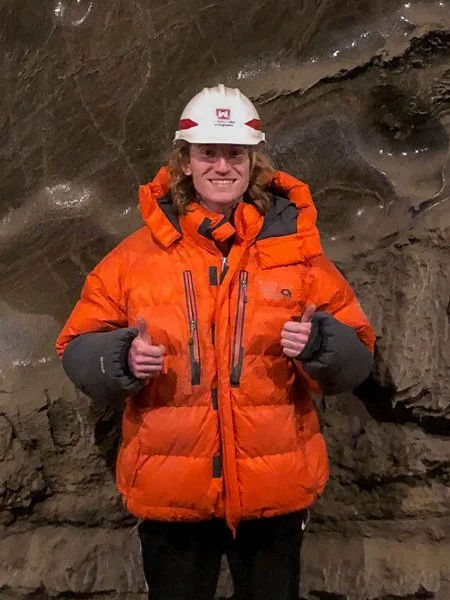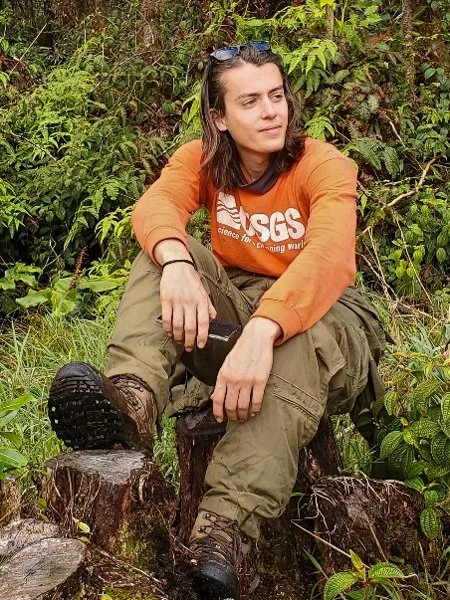Graduate Students - PhD
-

Alexis Slentz
My research interests revolve around dissolved organic matter (DOM) composition, transformations, and eventual fate in the Yukon River (Alaska, USA) and coastal zone, particularly in the context of climate change and seasonal variability. The molecular composition of riverine DOM reflects its source materials and processing; as such, changes in external sources via alterations to the terrestrial landscape can lead to substantial compositional shifts in allochthonous riverine DOM. These shifts in chemical composition can have major implications for DOM persistence and reactivity, potentially impacting greenhouse gas emissions from Arctic aquatic systems. In partnership with NASA, my recent work has focused on the influence of climate-induced landscape perturbations (e.g., increased frequency and severity of wildfires, shifts in dominant plant communities, accelerated rates of permafrost thaw) on Arctic riverine DOM composition and biolability. I am also examining seasonal trends in DOM composition and reactivity throughout the Yukon River delta and plume, with the goal of better constraining DOM quantity, quality, and transformations across the land-ocean gradient. This research involves the use of several biogeochemical methodological and analytical techniques, such as bioincubations, bulk DOC measurements, and ultrahigh resolution mass spectrometry (FT-ICR MS).
-

Oriane Yvin
My research interests lie in understanding carbon dynamics across different biomes on a global scale and more specifically in understanding what drives DOM stability in these systems. I’m interested in looking at the molecular composition of DOM in these systems from source to sink, with the aim of cross-comparing carbon cycling across aquatic ecosystems. I am currently working in collaboration with the NSF Long-term Ecological Research Network (LTER) at three different sites: The Beaufort Lagoon Ecosystems (Alaska, U.S.A) as a northern high-latitude location, the Plum Island Ecosystems (Massachusetts, U.S.A) as a temperate location, and finally the Florida Coastal Everglades (Florida, U.S.A) as a sub-tropical location. Additionally, within the Everglades I am examining the role of fire on the molecular-level composition of DOM and what this means for the role this material plays in the ecosystem. Data from bulk DOM analyses (DOC, ultra-visible spectroscopy) and molecular-level analysis (FT-ICR MS) are harnessed to answer a broad suite of questions on the fate of DOM across the aquatic continuum.
-

James Anderson
My research interests revolve around organic matter (particularly dissolved), its sources, sinks and factors that control both its degradation and persistence. I am interested in a variety of aspects of organic matter biogeochemistry: the detailed characterization of chemical composition and controls thereof, the link between chemical composition and reactivity, the importance of intrinsic and extrinsic controls on organic matter persistence and reactivity, and the pathways that protect organic matter from microbial degradation. I am also interested in how the methods we use to characterize organic matter influence our interpretation of how it exists in situ. Such methods include absorbance and fluorescence spectroscopy, size exclusion chromatography, and ultrahigh resolution mass spectrometry. My research questions often pertain to the effects anthropogenic activities have on organic matter characteristics, such as how land-use and climate change affect dissolved organic matter composition and the link between composition and reactivity. My biogeochemical interests sprouted in lakes but have spread to any watery ecosystem and even soils.
-

Ali Malik
I am broadly interested in studying human landscapes and their effects on ecosystem health and function. My current research focuses on how land-use change in the Congo Basin is impacting local carbon cycling processes and how the resulting consequences of this will shape regional and global carbon budgets. As a region with a rapidly growing population and high rates of food insecurity, there is a pressing need to determine how different land-management strategies will fare in terms of maintaining both soil fertility and carbon storage. I am investigating this matter through several projects comparing agricultural and pristine systems by assessing organic matter composition in both soils and aquatic systems via FT-ICR-MS. From this work I hope to provide new insight into the complex challenges facing this region.
